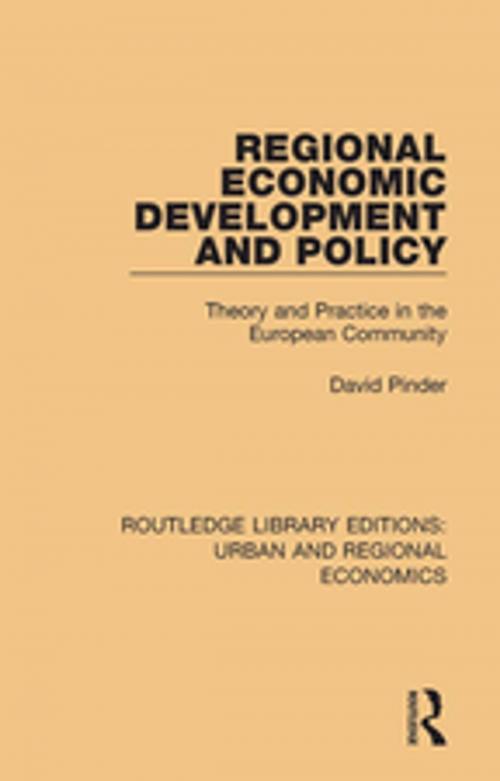Regional Economic Development and Policy
Theory and Practice in the European Community
Business & Finance| Author: | David Pinder | ISBN: | 9781351594196 |
| Publisher: | Taylor and Francis | Publication: | September 5, 2017 |
| Imprint: | Routledge | Language: | English |
| Author: | David Pinder |
| ISBN: | 9781351594196 |
| Publisher: | Taylor and Francis |
| Publication: | September 5, 2017 |
| Imprint: | Routledge |
| Language: | English |
Originally published in 1983, when Europe’s economies were facing the worst recession since the 1930s, this book reviews the outcome of a quarter of a century of research and practical experience in the field of regional economic management. In the spatial context of the European Community, the author explores central issues by integrating the results of his own research with those of economists, geographers, economic historians and psychologists. It provides a wide survey of the subject, demonstrates the complexity of the spatial-economic systems which the regional economic planner seeks to modify, analyses the strategies for regional development employed by national and international agencies and offers a substantial annotated bibliography. Contradictions arising from the contrasting spatial perspectives of national governments and the European Commission are emphasised. Among other things, it concludes that many regional problems strongly reflect perception and behavioural factors as well as purely economic constraints.
Originally published in 1983, when Europe’s economies were facing the worst recession since the 1930s, this book reviews the outcome of a quarter of a century of research and practical experience in the field of regional economic management. In the spatial context of the European Community, the author explores central issues by integrating the results of his own research with those of economists, geographers, economic historians and psychologists. It provides a wide survey of the subject, demonstrates the complexity of the spatial-economic systems which the regional economic planner seeks to modify, analyses the strategies for regional development employed by national and international agencies and offers a substantial annotated bibliography. Contradictions arising from the contrasting spatial perspectives of national governments and the European Commission are emphasised. Among other things, it concludes that many regional problems strongly reflect perception and behavioural factors as well as purely economic constraints.















